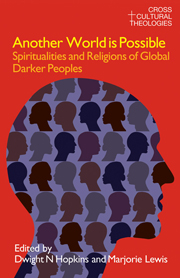Book contents
- Frontmatter
- Dedication
- Contents
- Acknowledgements
- Contributors
- Introduction
- Part I India
- Part II Japan
- Part III Australia
- Part IV Hawaii
- Part V England
- Part VI South Africa
- Part VII Botswana
- Part VIII Zimbabwe
- Part IX Ghana
- Part X Cuba
- 17 Eco-feminism and Yoruba Religion in Cuba: A Proposal for Inter-religious Dialogue
- 18 Black People and the Church
- Part XI Jamaica
- Part XII Brazil
- Part XIII USA
- Endnotes
- Select Bibliography
- Index of Subjects
- Index of Names
17 - Eco-feminism and Yoruba Religion in Cuba: A Proposal for Inter-religious Dialogue
from Part X - Cuba
- Frontmatter
- Dedication
- Contents
- Acknowledgements
- Contributors
- Introduction
- Part I India
- Part II Japan
- Part III Australia
- Part IV Hawaii
- Part V England
- Part VI South Africa
- Part VII Botswana
- Part VIII Zimbabwe
- Part IX Ghana
- Part X Cuba
- 17 Eco-feminism and Yoruba Religion in Cuba: A Proposal for Inter-religious Dialogue
- 18 Black People and the Church
- Part XI Jamaica
- Part XII Brazil
- Part XIII USA
- Endnotes
- Select Bibliography
- Index of Subjects
- Index of Names
Summary
Being black is experiencing one's own identity being denied but it is also, and above all things, the experience of committing to rescue the history and re-inventing oneself in its potentiality. Maria Salete
In the beginning, down here on earth, there was only fire and burning rocks. Then Olofi, the Almighty, wished that the world existed and turned the vapor of the flames into clouds. From those clouds fell the water that extinguished the fire. In the huge holes, between the rocks, took form Olokún, the ocean—which is terrible and makes all fear. But the sea is also good because water is the source of life and the water formed veins on the earth so that life could spread around. That is Yemayá, the Mother of the Waters. This is why it is said that before anything existed Yemayá was lying down and suddenly said: “Ibi bayán odu mi: my womb hurts” and she gave birth to rivers, orishas and all that breathes and lives on Earth.
During the last few decades, we have witnessed the rebirth of different theological manifestations from black women in Latin America, the Caribbean and Africa. These theologies were met with the memories and history of black people, but also with ancestral religious experience.
Our approach is meant to acquire knowledge about something that also belonged to us. We claimed that it was knowledge from outside. However we felt embraced and loved by the Goddesses of our female ancestors.
- Type
- Chapter
- Information
- Another World is PossibleSpiritualities and Religions of Global Darker Peoples, pp. 253 - 263Publisher: Acumen PublishingPrint publication year: 2009



